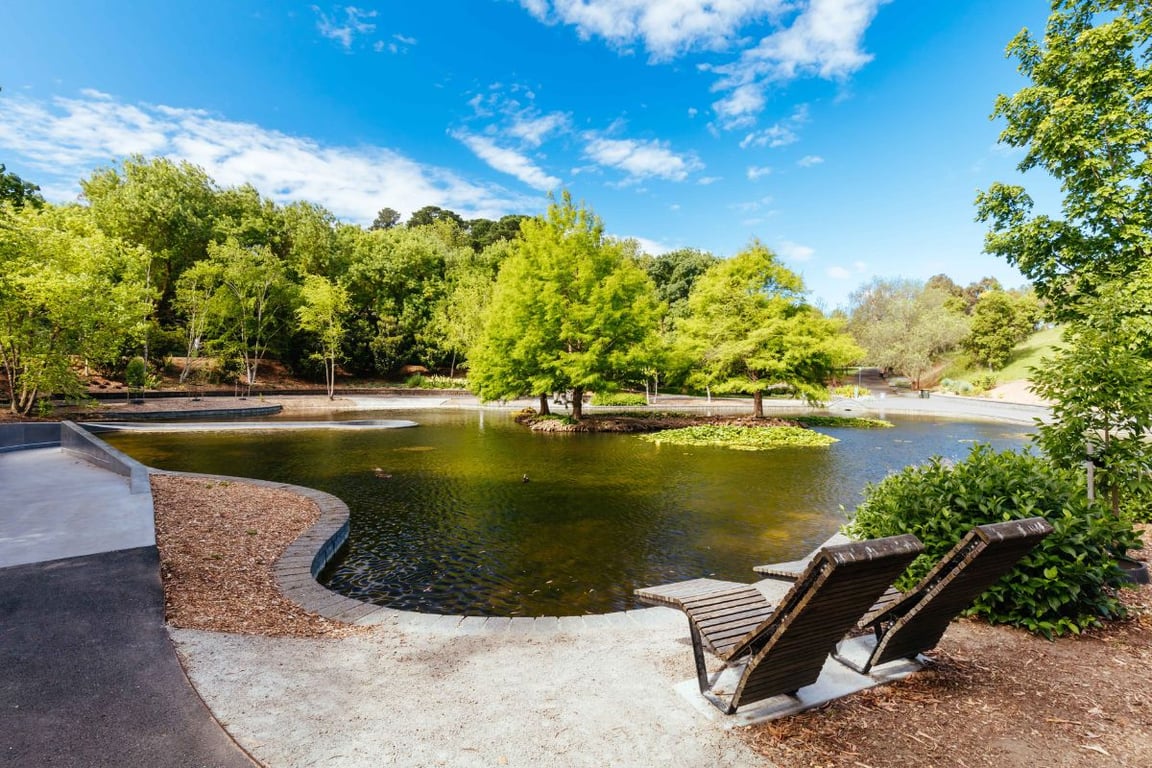




A pond is a lovely element that adds major panache to any home’s outdoor landscaping. The fish, the cute little mirrored ball ornaments, the lily pads—but what happens when winter comes blustering in? How do you protect your pond and its precious contents once the seasons change?
There are simple steps you can take to winter-proof your pond. Prepare it for the cold weather so you can keep it safe and aesthetically pleasing until spring rolls back around.
During the fall, install a simple pond net over the water to catch stray leaves before they begin to fall. Once winter arrives and the trees are bare, roll the captured leaves in the net, empty it, and store until next season.
Before you begin to winterize your pond, use a skimming net to remove any leftover debris and fallen leaves that may have found their way into the water. Then, if you’re planning to shut down your pond completely for the winter, carefully remove the pump and store it somewhere warm, such as your basement or garage. This will lengthen the pump’s life.
Use a smaller re-circulating pump to oxygenate the water in your pond to keep the fish alive and maintain an open hole in the ice during the coldest months of winter. When your pond begins to freeze, this hole will allow harmful gases to escape and protect the ecosystem of your pond while it is icy.
If your pond includes tropical plants, they likely won’t last through the winter – especially if you live in an area that reaches extremely low temperatures. As soon as the temperature of the water in your pond dips below 60 degrees, it’s time to remove the tropical foliage. You don’t have to throw the plants in the trash, however. Consider converting them into indoor plants until things warm back up outside.
If you live in an area with particularly cold winters, opt for cold weather fish such as Goldfish or Koi for your pond. During the winter months, these kinds of fish hibernate. Their metabolism slows to a crawl as the water becomes colder and they float to the bottom of the pond to rest until warmer temperatures return. You don’t need to do anything to care for the fish when it’s cold – in fact, if you feed them, they may die. Fish cannot have food when they’re in hibernation.
You can do something to help your pond’s fish before winter, however. Ensure the pond is clean before putting them to bed for the season. To do this, use pond salt or products that add slime coating to your fish to prepare for the cold months ahead.
It’s simple to prep your pond for the winter. The most important part is to care for the wildlife and plant life in your pond. Everything else comes second.